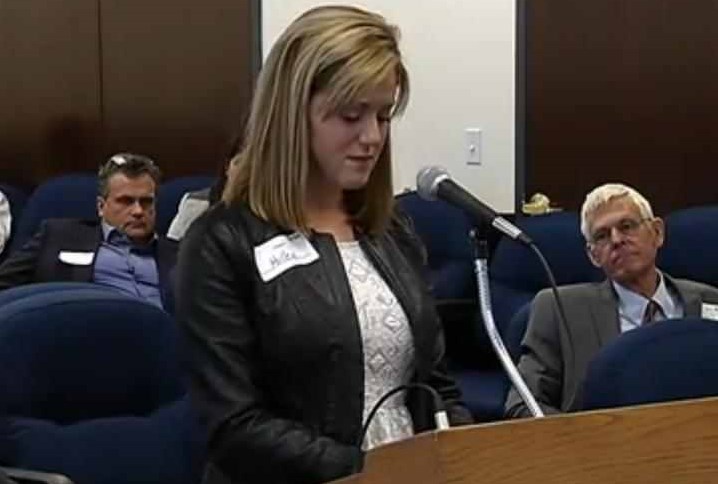
(updated) Charlotte's Web medical marijuana and the state Department of Health were walloped this week by two new stacks of court papers, including more allegations that state policymakers are “motivated by their own political, financial, and business goals.”
Lawyers for Master Growers of Sanford and Baywood Nurseries of Apopka filed a lawsuit March 24 in Florida's Division of Administrative Hearings. The action seeks to erase rules for Charlotte's Web proposed by the Office of Compassionate Use. The growers claim -- as did a lawsuit filed two weeks ago -- that regulations to grow, cultivate and dispense Charlotte's Web were framed by policymakers with political ties and financial interests in medical marijuana.
In a third challenge, The Medical Cannabis Trade Association of Florida claims rulemaking by the Department of Health was vague, shoddy, and a wrongful exercise of its authority.
The MCTA is itself vague, with no clear business pedigree in Florida.
The group was incorporated in Delaware as a nonprofit March 20, said Clifford Wolff, whose law firm in Fort Lauderdale is listed as the address for MCTA. Wolff said he was not allowed to disclose names of members or the size of the membership in MCTA.
"The members advocate appropriate growing methods for the state of Florida," Wolff said.
In court papers the group is "organized and maintained for the benefit of nurseries" that intend to apply for medical marijuana licenses.
The separate suits were filed minutes apart and seconds before a state-mandated deadline to challenge the latest batch of proposed regulations for Charlotte's Web.

Holley Moseley, the mother of RayAnn Moseley, a Pensacola child with intractable epilepsy. (Via The Florida Channel)
The rules were shaped by a committee that included nursery reps, patient advocates, and a Colorado grower who co-invented Charlotte's Web. The proposal withstood a 21-day period of public comment.
The growers lawsuit says the "majority of Committee members, while certainly politically connected throughout the State of Florida, were unfit to serve as alleged sources of reliable information, expertise, and industry input.
"In addition, the majority of Committee members failed to serve the overall interests of all applicants [and] instead the majority of Committee members appeared to be motivated by their own political, financial, and business goals."
The committee included representatives for Costa Farms and Plants of Ruskin, which partnered in a petition in 2014 that flattened the first set of regulations for Charlotte's Web. The panel also featured Joel Stanley, a Colorado-based grower who developed Charlotte's Web, and Peyton and Holley Moseley, parents of a child with epilepsy.
"Mr. Stanley is in business with Peyton and Holley Mosely through Realm of Caring Florida," the lawsuit says. "Mr. Mosely apparently sold his landscaping business to join Ray of Hope 4 Florida, a for-profit business, which will partner or has partnered with one of the eligible nurseries in order to become a Dispensing Organization."
Master Growers and Baywood Nurseries are represented by a legal team that includes Seattle attorney Hillary Keeling and Ryan Malkin of Bal Harbour. The growers claim Patricia Nelson, director of the Office of Compassionate Use, approved "veiled" committee appointments that "ultimately constitutes an invalid exercise of delegated legislative authority." Master Growers claims an official request to be considered for the committee was ignored by Nelson.
The lawsuit says the proposed rule "will lead to only the wealthiest, most politically connected applicants becoming Dispensing Organizations, rather than those entities that are most informed, capable, and qualified."
The first lawsuit by a Jacksonville law firm was on behalf of a 4-year-old girl who is using medical marijuana because of an inoperable brain tumor. An April 14 hearing was set in that case.
The Compassionate Medical Cannabis Act was signed into law June 16, 2014.
Outside
Bitcoin mining emissions in China will hit 130 million tonnes by 2024 https://t.co/w6He7so8N2 pic.twitter.com/qYUDtBdeRK
— New Scientist (@newscientist) April 9, 2021
The Gunk Report
For the Blue-Green Algal Bloom Weekly Update from the Florida Department of Environmental Protection, tap here. For DEP's Algal Bloom Sampling Map, tap here.
What, me worry?
» "PLAYING WITH SHARKS," which recently premiered at the Sundance Film Festival, documents diving legend Valerie Taylor.